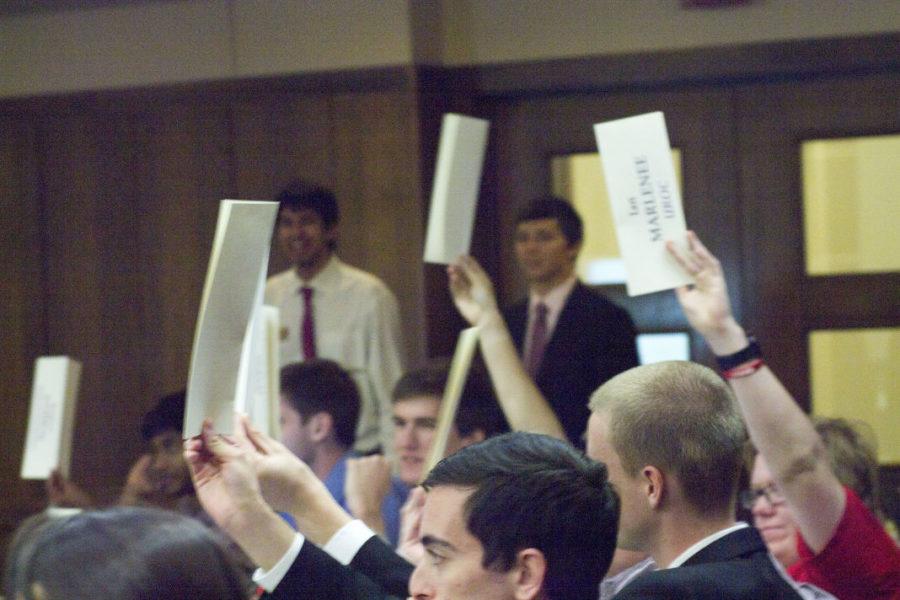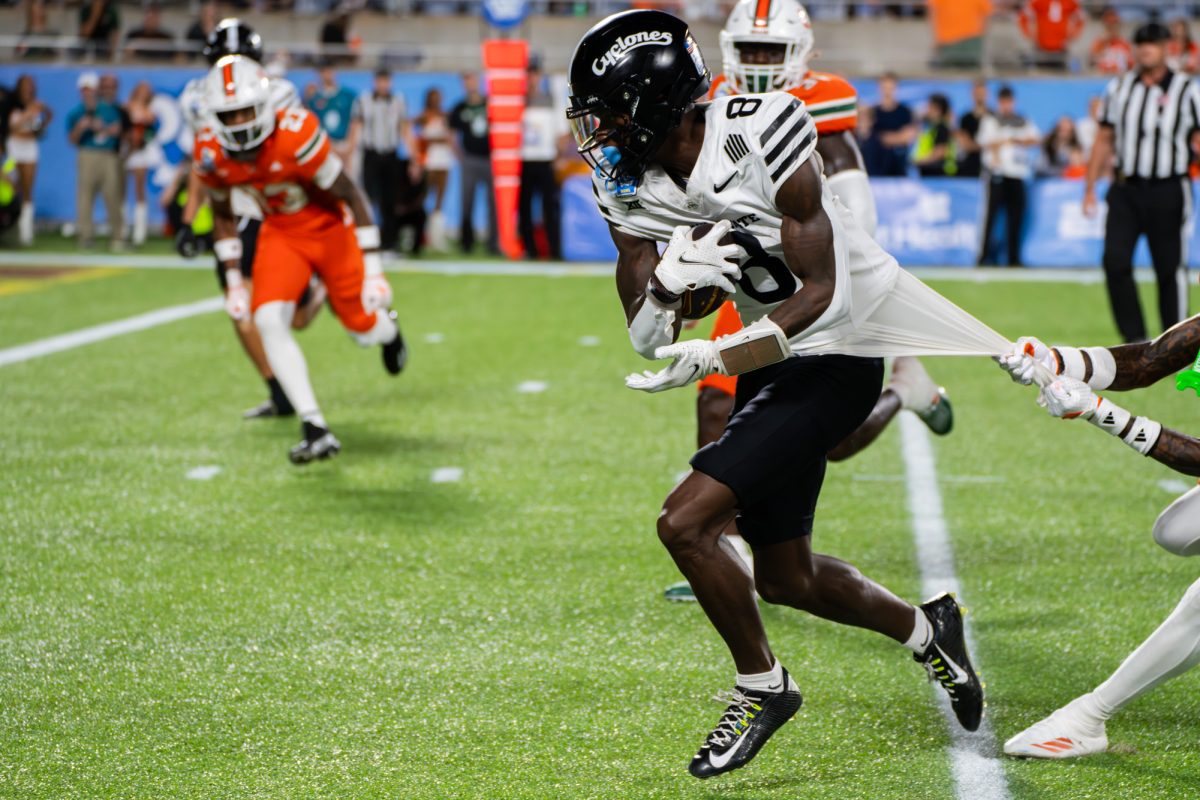GSB debates funding bike prototypes, appoints four Supreme Court justices
October 16, 2014
Wednesday night’s Government of the Student Body meeting saw debate on a rules adjustment, passed the funding of prototypes for the bike share program and appointed four justices to the Supreme Court.
Debate centered on an adjustment in the rules for GSB that would strike out text from bylaw 11.2.5 and see the text be replaced by “The GSB shall not give any funding to a political organization for the purposes of electing a candidate to office, and the GSB shall not receive any funding from any political party or campaign.”
Sen. Cole Button, freshmen in pre-business, said the intent of changing the text was to clarify who could receive funding from GSB.
“If the ISU College Republicans or Democrats wanted funding for travel expenses to go watch a debate, then we would consider it, debate it and vote for it. If the two groups wanted funds for Joni Ernst t-shirts or Bruce Braley bumper stickers, then that would be denied due to violation of the bylaws,” Button said.
GSB did not pass the bill.
Also on GSB’s agenda was the Senate and executive collaboration on Bike Share and campus transportation.
GSB debated funding $2,800 from the capital projects account to the Bike Share studio class and funding prototypes of bikes for the Bike Share. The senate also discussed creating a committee to involve GSB in the Bike Share program with the purpose of insight.
The feasibility study for the studio class is focused specifically on the Bike Share program. The committee made up of GSB senators and executives would gather input from constituents to be shared to the Bike Share steering committee and CyRide.
“The feasibility study is looking directly at how a bike share program would look on our campus, the status of campus transportation and environment,” said Hillary Kletscher, GSB president.
Some senators said forming the committee would give GSB necessary input about the program and show students they are committed to bettering the student experience, even though a Bike Share program is not guaranteed in the end.
Others said there is still too much unknown information about whether students want the program and the university’s infrastructure’s ability to handle it. Some voiced distrust in the ability of students to complete a full and accurate feasibility study, and said it was not necessary to invest more money at this point.
GSB also confirmed four of the eight associate justices to the Supreme Court.
The four associate justices are Akol Dok, sophomore in political science, Alex Lindvall, senior in political science, Brian Garrido, sophomore double majoring in philosophy and economics and Justin Pearson, junior in political science.
Senators of GSB debated on the qualifications of two of the four justices confirmed at the meeting.
“We are confirming nine justices to a court that hasn’t been in session since April,” said Sen. Richard Hartnett, sophomore in history. “We must be sure that all candidates are qualified. My personal opinion is that we could do better and that’s no offense to anyone.”
Debate continued, with some saying the justices — as college students — should not be expected to have a surplus of knowledge on law. Eventually GSB voted to confirm all four of the nominated justices.
GSB also debated the Free Speech Zone on campus.
Though the bill failed, the new proposal would have the Government of the Student Body request that the administration and the University as a whole re-evaluate the current free speech policy on campus.
It would have had the Government of the Student Body request that the administration expand the Edward S. Allen Areas of Free Debate across the entire campus.
“We need to be expressing our differences, our diversity who we are as different people,” said Senator Aaron Brown, senior in Electrical Engineering. “We are designated as one of the worst campuses on freedom of speech.”
Other senators voiced concern that expanding the zone to contain all of campus would make students feel unsafe and harassed throughout campus.
“A student cannot be successful when they are harassed. If telling somebody that they are a fornicator is not harassment, then I don’t know what harassment is. That is a clear personal attack on someone,” said Sen. Richard Hartnett, referring to recent visitors in the Free Speech Zone.







